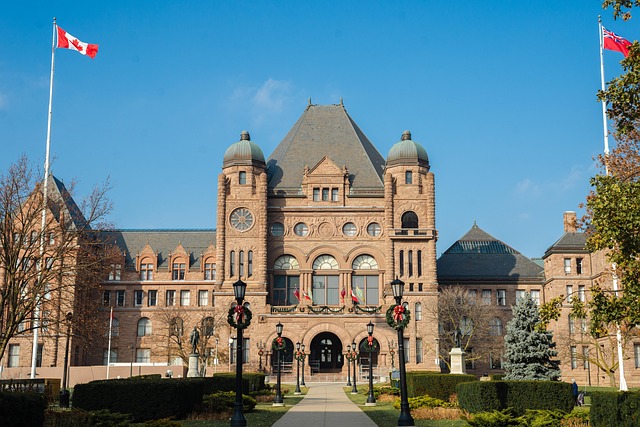Navigating Plea Bargains in Felony Cases is a complex strategic decision for accused individuals and their lawyers, offering a way to avoid trial and potential harsher sentences. While it provides relief from overburdened courts, critics voice concerns about unfair outcomes. Defendants must balance reduced charges against future legal limitations. Victims of fraudulent financial practices face severe emotional and monetary losses, highlighting the importance of holding perpetrators accountable through successful prosecutions. Skilled attorneys use plea bargains to protect assets and preserve stability, with regulatory bodies ensuring fair market practices as a deterrent for unethical manipulations.
Fraudulent financial practices pose a significant threat to individuals and markets alike. This article delves into the intricate world of financial fraud, exploring its various forms, from common schemes to the legal intricacies of navigating plea bargains in felony cases. We examine the profound impact on victims and dissect preventive measures taken by regulatory bodies. Understanding these aspects is crucial for both individuals seeking protection and legal professionals guiding clients through complex proceedings like plea deals.
- Understanding Fraudulent Financial Practices: Definition and Common Schemes
- Navigating Plea Bargains in Felony Cases: Legal Process and Considerations
- The Impact on Victims: Emotional, Financial, and Legal Ramifications
- Preventive Measures and Regulatory Roles: Protecting Individuals and Markets
Understanding Fraudulent Financial Practices: Definition and Common Schemes

Fraudulent financial practices refer to a range of illegal activities designed to mislead and exploit individuals or entities for financial gain. These practices often involve manipulation of financial information, false representation, or outright deception to achieve financial advantages. Understanding these schemes is crucial in navigating legal systems, especially when dealing with felony cases. Common fraudulent financial practices include investment scams, accounting fraud, and mortgage fraud, where perpetrators use sophisticated methods to deceive investors or obtain loans under false pretenses.
When addressing fraudulent financial practices, one critical aspect is understanding the role of plea bargains in felony cases. Navigating plea bargains requires careful consideration as it can significantly impact outcomes for both defendants and victims. Achieving extraordinary results in these cases may involve resolving charges through plea agreements, which can lead to lesser sentences or dismissal of some counts. However, it’s essential to ensure that such deals are fair and just, balancing the interests of the respective business or community affected by the fraud while also respecting the rights of the accused, ultimately aiming for justice in what can be complex legal landscapes.
Navigating Plea Bargains in Felony Cases: Legal Process and Considerations

Navigating Plea bargains in Felony cases is a complex process that involves careful consideration from both the accused and their legal counsel. These agreements offer an alternative to a trial, potentially reducing sentencing or avoiding indictment altogether. However, they come with significant implications. In exchange for a guilty plea, prosecutors may agree to reduce charges or recommend a lesser sentence, providing the defendant acknowledges guilt. This strategy is often employed in cases where the evidence is strong against the accused, aiming to streamline the legal process and mitigate potential consequences.
The general criminal defense strategy revolves around challenging the prosecution’s case, raising doubts about evidence integrity, and exploiting procedural errors. Plea bargains can disrupt this approach, as accepting a deal may preclude further legal challenges. Philanthropic and political communities often advocate for plea bargaining as a means to alleviate overburdened court systems, but critics argue it can lead to unfair outcomes and undermine the pursuit of justice. Balancing these considerations, defendants must weigh the benefits of avoiding a potentially harsher sentence against the potential trade-off of limited legal recourse in future matters.
The Impact on Victims: Emotional, Financial, and Legal Ramifications

Victims of fraudulent financial practices often face a myriad of challenges, both emotionally and financially. The emotional toll can be immense, with feelings of betrayal, anger, and anxiety common among those affected. The financial ramifications are equally devastating, as victims may have lost significant sums of money, impacting their ability to meet basic needs or maintain their standard of living. This can lead to long-term financial instability and even bankruptcy.
Additionally, navigating legal complexities, particularly in felony cases, can be an arduous process. Victims may find themselves entangled in court proceedings, including negotiating plea bargains. The emotional strain of this process is exacerbated by the potential for significant consequences, such as jail time and hefty fines. However, an unprecedented track record of successful prosecutions across the country highlights the growing determination to hold perpetrators accountable for high-stakes cases involving fraudulent financial practices.
Preventive Measures and Regulatory Roles: Protecting Individuals and Markets

Navigating Plea bargains in felony cases plays a pivotal role in fraudulent financial practices, offering a strategic avenue for both corporate and individual clients to mitigate severe legal consequences. Skilled attorneys often employ this tactic, aiming for reduced sentences or charges in exchange for guilty pleas. Achieving extraordinary results through plea bargaining can shield assets, preserving the financial stability of businesses and individuals alike.
Regulatory bodies bear the responsibility of ensuring fair market practices by holding entities and individuals accountable. These agencies implement stringent rules and guidelines, fostering transparency and accountability. By closely monitoring transactions and scrutinizing financial reports, they safeguard philanthropic and political communities from unethical manipulations. Effective regulatory oversight acts as a deterrent, deterring potential perpetrators while protecting consumers and investors in the long run.
Fraudulent financial practices pose a significant threat to individuals and markets alike, as evidenced by the far-reaching consequences discussed in this article. Understanding common schemes and navigating plea bargains in felony cases is crucial for both victims and legal professionals. By recognizing the emotional, financial, and legal impacts on victims and implementing robust preventive measures, we can strengthen regulatory roles and better protect vulnerable parties. In terms of navigating plea bargains, a thorough understanding of the legal process empowers prosecutors and defendants alike to make informed decisions that promote justice while mitigating long-term repercussions.






